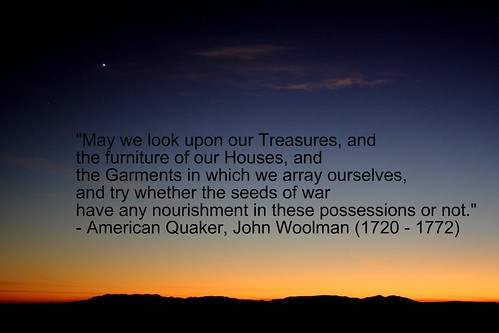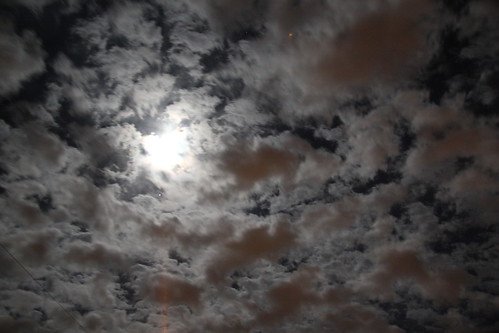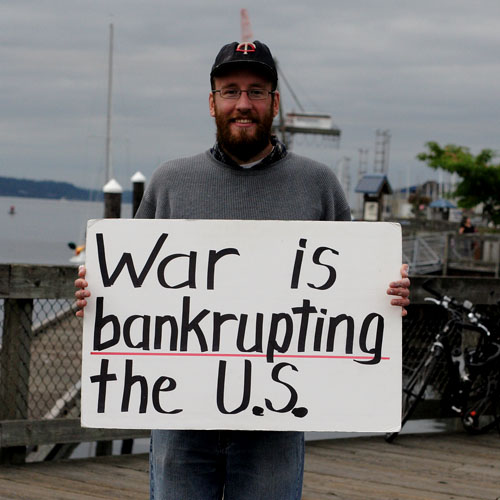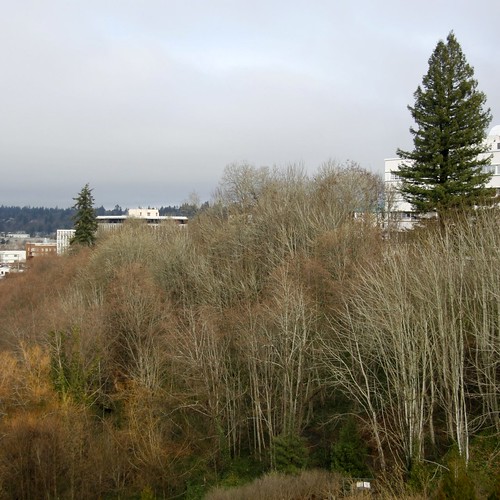
John Woolman (1720 - 1772): "May we look upon our Treasures, and the furniture of our Houses, and the Garments in which we array ourselves, and try whether the seeds of war have any nourishment in these possessions or not."
Lately I have been thinking about how to build a mass movement of nonviolent resistance to defy the political status quo. The political status quo in the USA is a plutocracy (that means rule by wealthy elite.) The real-political situation in a plutocracy is similar to a dictatorship—except in the USA it relies on popular media messaging to promote consumerism and complacency, along with a host of other harmful attitudes and myths, like racism, classism, ageism, genderism, homophobia, and myths like those of independence, scarcity, and meritocracy.
It seems to me that such a mass movement of popular nonviolent resistance will require a lot of popular education about how the current socio-economic/political establishment is actually harmful.
Many of us are just plain hood-winked, and don't understand how harmful our system is, or why it is the cause of so much suffering. People may sense that there is something wrong, but they may not understand what it is, nor why.
Another world is possible. It DOES NOT have to be like this! We can have progress without destruction, without violence, without oppression, without poverty, without war!









